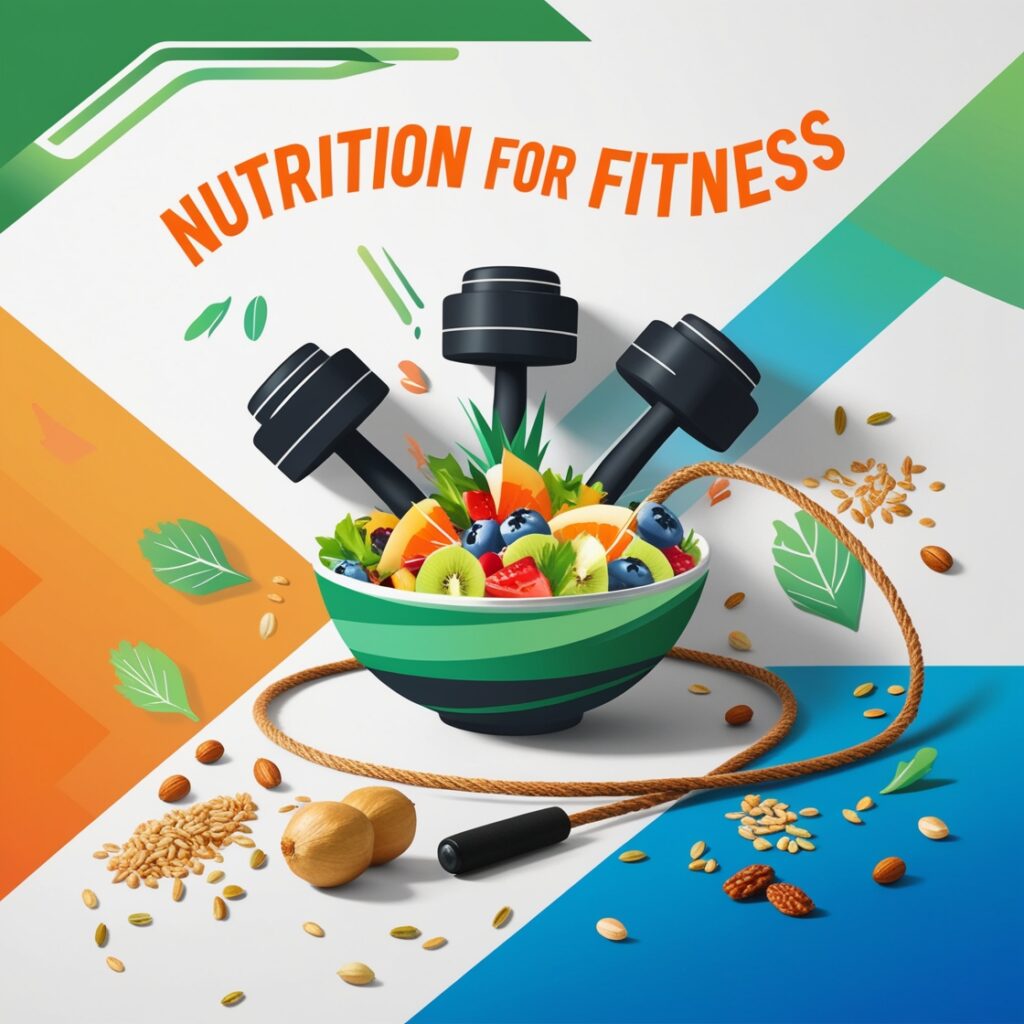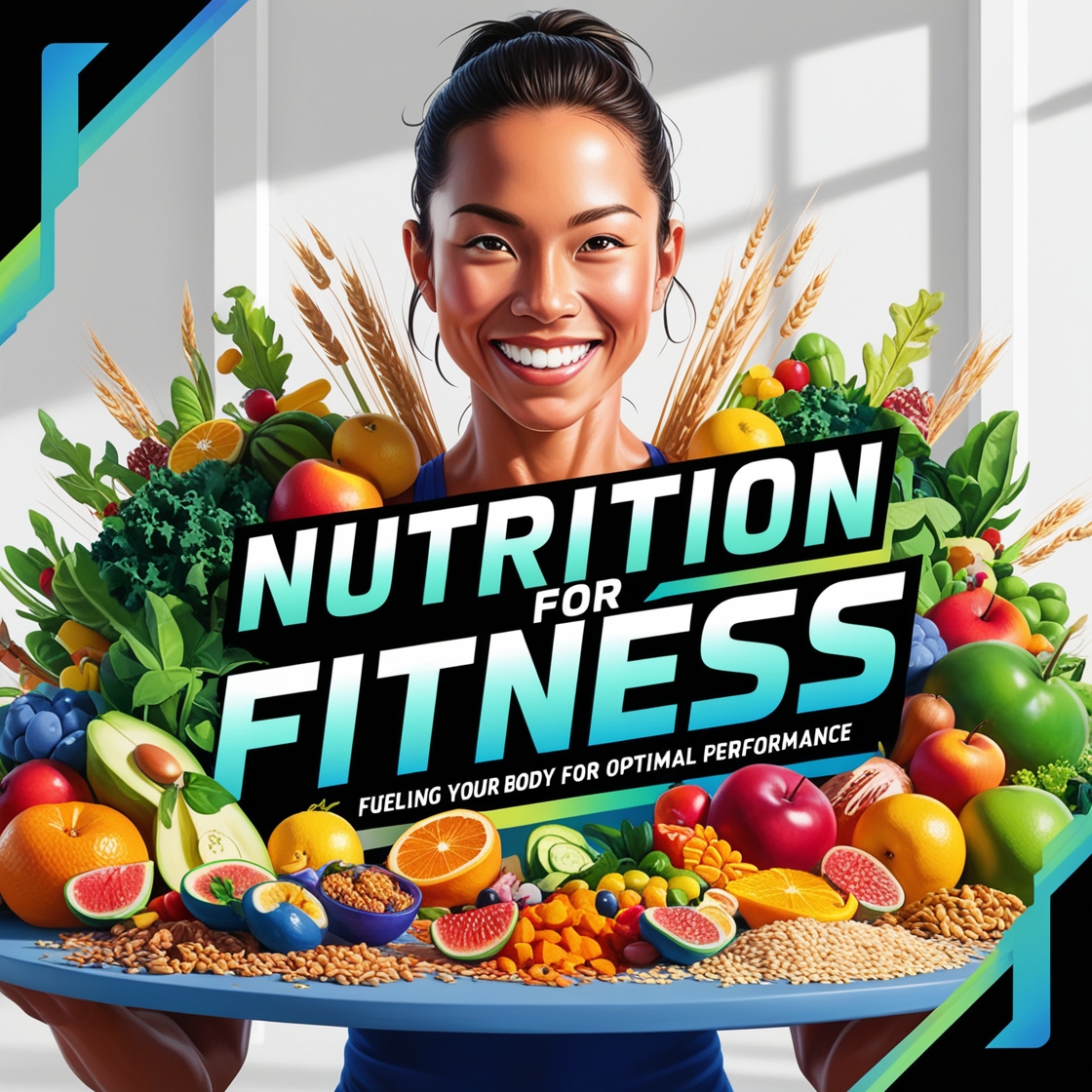
Nutrition plays a pivotal role in achieving fitness goals, whether you are an aspiring athlete, a weekend warrior, or someone looking to lead a healthier lifestyle. Understanding the fundamentals of nutrition helps ensure that your body has the essential nutrients it needs to perform at its best. This article explores the critical components of nutrition for fitness, focusing on macronutrients, micronutrients, dietary practices, and their impact on your performance and recovery. Nutrition for Fitness: Fueling Your Body for Optimal Performance:
Understanding Macronutrients and Micronutrients
Macronutrients: The Building Blocks of Nutrition
Nutrition for Fitness: Fueling Your Body for Optimal Performance:
Macronutrients—carbohydrates, proteins, and fats—are the primary energy sources for the body. Each plays a unique role in supporting fitness and overall health.
- Carbohydrates: Often referred to as the body’s main fuel source, carbohydrates are essential for energy production, particularly during high-intensity exercise. Complex carbohydrates, found in whole grains, fruits, and vegetables, provide sustained energy, making them crucial for athletes and fitness enthusiasts.
- Proteins: Essential for muscle recovery and growth, proteins are made up of amino acids, which are vital for repairing tissues damaged during workouts. Lean protein sources, such as chicken, fish, legumes, and dairy, not only support muscle development but also help maintain a healthy weight by promoting satiety.
- Fats: Healthy fats, including those from avocados, nuts, and olive oil, are crucial for hormone production and nutrient absorption. While often misunderstood, fats are an essential part of a balanced diet and contribute to long-term energy needs.
Micronutrients: Vitamins and Minerals
Vitamins and minerals, while required in smaller quantities, are equally important for maintaining optimal health. These micronutrients support biochemical processes in the body, enhance immune function, and aid in nutrient absorption.
- Vitamins: Essential for energy metabolism and immune function, vitamins such as B-complex, C, D, and E should be part of your daily intake. A diet rich in fruits and vegetables can help you meet your vitamin needs.
- Minerals: Key minerals like calcium, magnesium, and iron are vital for bone health, muscle function, and oxygen transport. Ensure you consume a variety of foods to meet your mineral requirements.
The Importance of a Balanced Diet
A balanced diet, rich in macronutrients and micronutrients, supports nutritional needs and promotes overall health. Aim for a plate that includes:
- Lean proteins for muscle repair.
- Complex carbohydrates for energy.
- Healthy fats for nutrient absorption and hormone balance.
- Fruits and vegetables for vitamins, minerals, and antioxidants.
Nutritional Guidelines
Understanding your nutritional requirements can help you make informed choices. Daily Reference Values (DRV) offer guidelines on the amounts of each nutrient necessary for maintaining health. Consider consulting a nutritionist or using online trackers like MyFitnessPal to assess your dietary habits and make necessary adjustments.
Dietary Practices to Enhance Fitness

Keep a Food Diary
Maintaining a food diary is an effective way to track your nutritional intake. By documenting what you eat, when you eat, and how much you consume, you can identify patterns and make better dietary choices. Many free online tools can help you analyze your food intake, ensuring you meet your macronutrient and micronutrient goals.
Portion Control and Meal Frequency
Practicing portion control can prevent overeating and support your energy expenditure. Aim to eat smaller, more frequent meals throughout the day to keep your energy levels stable and aid in nutrient metabolism. This approach is particularly beneficial for athletes who require consistent energy for training and recovery.
Weighing and Measuring Food
Investing in a food scale and measuring cups can help you accurately track your intake. Understanding portion sizes can lead to better food choices and prevent nutrient deficiencies.
Hydration: An Essential Component of Fitness Nutrition
Staying hydrated is crucial for performance and recovery. Water supports nutrient absorption, regulates body temperature, and aids in energy production. Drink plenty of fluids throughout the day, and ensure you hydrate before, during, and after workouts. In hot conditions or during intense exercise, increase your fluid intake to prevent dehydration.
The Role of Nutrient Timing
Nutrient timing refers to when you consume specific foods in relation to your workouts. Eating a balanced meal or snack that includes carbohydrates and protein before and after exercise can enhance performance and support muscle recovery. For example, a pre-workout meal might consist of whole grains and lean protein, while a post-workout snack could include a protein shake or Greek yogurt with fruit.
Common Nutritional Disorders and How to Avoid Them
Ignoring nutritional needs can lead to disorders like malnutrition, nutrient deficiencies, and obesity. To avoid these issues, focus on:
- Diverse food sources: Include a variety of foods to ensure you meet all essential nutrient requirements.
- Nutrient recycling: Opt for whole foods over processed options to maximize nutrient density.
Conclusion: Your Path to Fitness Through Nutrition
To achieve your fitness goals, prioritize nutrition as a key component of your training regimen. By understanding the roles of macronutrients and micronutrients, practicing mindful eating, and staying hydrated, you will enhance your performance, recovery, and overall health.
Consider consulting a personal trainer or nutritionist for personalized guidance tailored to your fitness objectives. Remember, what you put into your body significantly impacts your fitness journey. By making informed dietary choices, you set the foundation for a healthier, stronger, and more active lifestyle.
